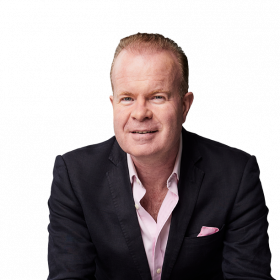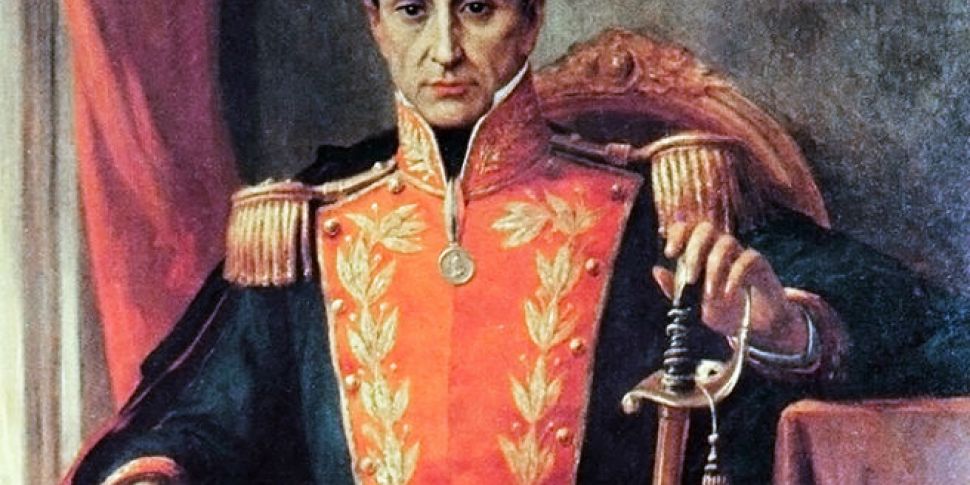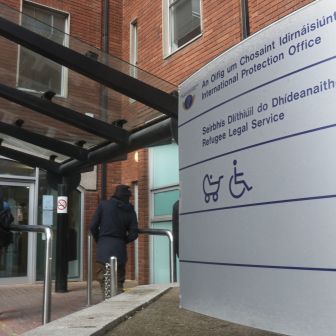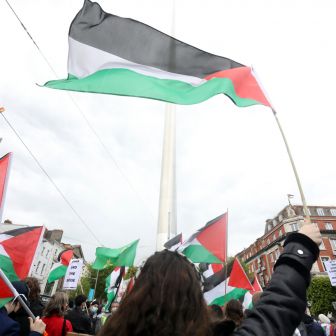The French and American Revolutions of the 18th century were beacons to independence movements around the world. In many places, like Ireland, these attempted rebellions ended in failure. Others were more fortunate though and the 19th century was marked by the birth of many new nations; many of them thanks to one man - Simón Bolívar.
Similar to the leaders of the American Revolution Bolívar was a member of the aristocracy. The son of a wealthy Creole family he was sent away to Europe to receive an education. Here he encountered the revolutionary thought of the Enlightenment thinkers and their ideas of national independence. This would become the basis for his philosophy in resisting Spanish rule.
In 1807 Bolívar returned to South America with his newfound ideology. That same year Napoleon invaded Spain and Portugal, beginning the Peninsular War. Bolívar, and others, moved to make Spain’s difficulty South America’s opportunity.
As French forces pushed ever deeper into Spain and central rule all but disappeared. In 1810 independent juntas began to spring up across Spanish South America. While most of these were seen as place holders for Spanish rule figures like Bolívar recognised the potential they held for independence.
With France still firmly on the front-foot a congress of Venezuelan provinces met on the 5th of July, 1811, and declared independence. This precipitated a civil war between loyalist and republican forces. This war would prove the making of Simón Bolívar as he became increasingly central to the republican cause.
The early stages of the war proved disastrous for the republicans and they suffered numerous setbacks and losses. Just over a year after declaring a republic Venezuela surrendered. The revolution had seemingly died in its cradle as republicans fled or availed of Spain’s amnesty. Bolívar himself left for Curaçao that August.
From this self-imposed exile the young revolutionary watched as the royalists broke their word and began to arrest old republicans. The idealist in Bolívar burned with anger and he took up arms again, joining with forces in Cartagena who had been fighting since November 1811. Bolívar built his reputation as a military leader and soon found himself the darling of the revolutionary movement.
Part of this success was his reflection on why the Venezuelan republic had failed so rapidly. Recognising the weakness of the federal model, namely its splintering of regional populations, Bolívar moved to centralise and unify the forces opposing Spanish rule.
At the same time Bolívar saw how important violence was in this conflict. In June 1813 he issued the Decree of War to the Death, supposedly as a reaction to crimes and massacres committed by Spanish forces. This decree marked for death all Spaniards who didn’t actively support South American independence.
While this extreme proclamation proved highly effective, bolstering the republican cause considerably, it instituted a model of all-or-nothing warfare that would mar much of South American history.
These changes were quite effective and Bolívar enjoyed a string of military success. On the 6th of August, 1813, he retook Caracas and was celebrated as ‘El Libertador’. This was Bolívar’s first, but not last, taste from the poisoned chalice of power.
In 1817, after being ousted in 1814, Bolívar regained power and was instituted as the President of the Third Republic of Venezuela. Over the following six years he would become president of three more newly formed South American nations: Gran Colombia, Peru, and Bolivia – which had been named in his honour.
Bolívar was a firm advocate and believer in republican ideals. He dreamed of a strong America founded on the ideal of equal freedom for all. Yet he also believed that he was the only one who could fulfil this dream. As such when a challenge arose to his authority Bolívar firmly stamped it out.
In 1826, in an attempt to secure the survival of Gran Colombia, Bolívar called a constitutional convention. This would, he hoped, secure the presidency as an office for life and create a hereditary third chamber, thereby isolating this great nation from local politics and potential splintering. When the convention refused to ratify these changes Bolívar proclaimed himself dictator.
Supposedly an interim move to secure stability this dictatorship would last until Bolívar’s death and alienated many who already opposed his central rule. Facing mounting challenges Bolívar became increasingly disillusioned. He had conceived of a utopian South American state but had met with ever more resistance as he tried to make this dream become a reality.
In 1830 the great state of Gran Colombia splintered into Ecuador, Venezuela, and the Republic of New Granada. Bolívar’s dream lay in ruins; he declared “All who served the Republic have ploughed the sea” and renounced the presidency. He died later that year of tuberculosis.
Chairing a panel of historians Tommy Graham, editor of “History Ireland”, looks at the life and career of Simón Bolívar and assess his impact on South America and the wider world. Was he the great liberator? A dictator bent on realising his own dream? Or both?









